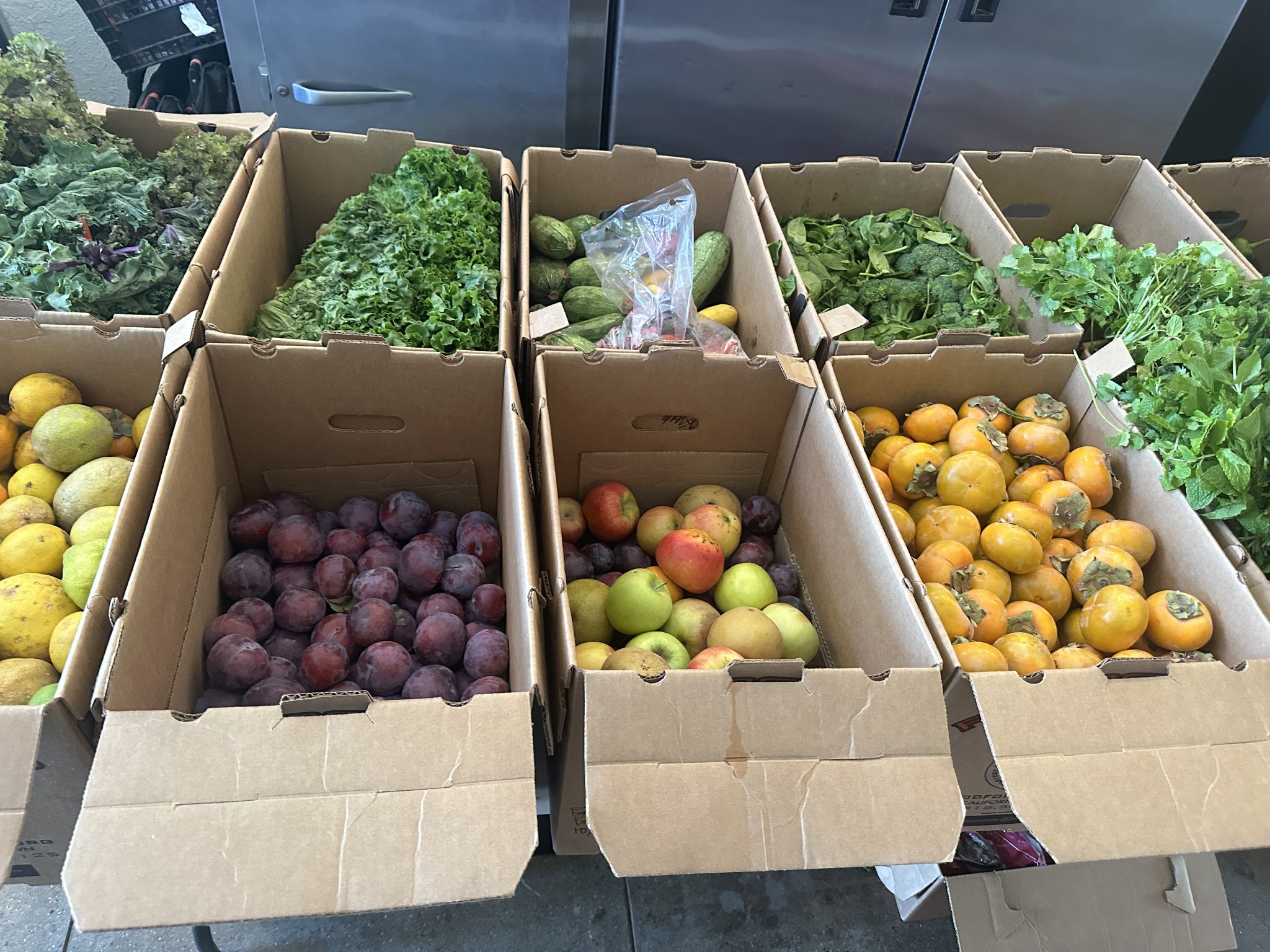Purchasing Practices

Why is it Important?
Responsible consumption is crucial for promoting sustainability and minimizing environmental impact. By making mindful choices in what we purchase, use, and dispose of, we can reduce waste, conserve resources, and support ethical production practices. This mindset not only helps protect the planet for future generations but also encourages companies to prioritize eco-friendly and socially responsible practices. Ultimately, responsible consumption empowers individuals to contribute to a healthier, more equitable world.
What is LMU Doing?
Loyola Marymount University (LMU) is committed to promoting sustainable practices across campus, and students have plenty of opportunities to make eco-friendly choices in their daily routines. For those looking to shop local, the weekly Wellness Wednesdays event on campus offers fresh, locally sourced produce, providing a great way to support nearby farmers while eating healthy. In addition, the Lion's Den, LMU's campus café, serves only 100% Fair Trade organic coffee, espresso, and tea, ensuring that every cup supports ethical labor practices and environmental sustainability. Transportation on campus is also eco-conscious. Through the Cycling Lion program, LMU students can take advantage of free bike rentals, making it easier to get around sustainably. Moreover, LMU offers a Metro U-Pass Program, providing students with discounted access to public transportation, reducing the need for cars and helping lower the university's overall carbon footprint. These initiatives reflect LMU's dedication to fostering a sustainable, environmentally responsible campus community.
What Can You Do?
- Shop Locally: Farmers markets in LA provide locally sourced produce, reducing food miles and packaging waste. Try checking out the Playa Vista Farmers Market or Santa Monica Farmers Market. Eco conscious stores such as Smitten Kitten in Silver Lake or Ecology Center in San Juan Capistrano focus on eco-friendly products and sustainable living products.
- Support Fair Trade: Fair trade goods verify that workers are treated ethically and paid fairly. Local businesses like Ten Thousand Villages help to support Fair Trade LA. Supporting fair trade certified coffee, helps consumers empower small-scale farmers, many of whom live in developing countries, by providing them with a stable income. It also promotes environmentally sustainable farming practices, reducing the harmful effects of pesticides and promoting biodiversity. Look for cafes such as Café Gratitude or Coffee Connection in LA, which source fair trade certified coffee.
- Use Sustainable Vendors: In Los Angeles, using eco-friendly transportation options like the Metro Bike Share or public transit helps to reduce your carbon footprint. Moreover, consider Postmates or Instacart for delivery services that offer more sustainable options, like carbon-neutral delivery or choosing local, organic products.
Shopping Amazon
Here are some tips to reduce waste when shopping Amazon:
- Request Plastic-Free Packaging: To receive plastic-free packaging on your orders, simply email cs-reply@amazon.com or use their chat feature to request minimal, plastic-free packaging for future purchases. This preference will be saved to your account.
- Choose Frustration-Free Packaging: Opt for frustration-free packaging, which means products are shipped without extra Amazon packaging. Just search for "frustration-free packaging" on Amazon, and eligible products will appear.
- Select No-Rush Shipping: By choosing no-rush shipping, you can help lower the carbon footprint of your orders. Plus, Amazon will reward you with a $1 digital credit to spend on ebooks, apps, music, and videos (U.S. only).
- Reuse or Recycle Shipping Materials: Make your Amazon shopping more eco-friendly by reusing the packaging materials, like cardboard boxes. You can repurpose them for storage, gifts, crafts, or even fun pet projects! When you're done, be sure to break down the boxes, remove the tape, and recycle them properly.
Practices and Purchasing
Understanding the ecological impact of procurement decisions, LMU takes great care in sourcing food and materials, ensuring the ethical treatment of animals and fair labor practices. This permeates our dining programs, which emphasize local, seasonal produce, and the adoption of eco-friendly initiatives to minimize waste and promote environmental responsibility.
Within LMU's dining services, chefs incorporate seasonal products available from local vendors into their menus. This supports local agriculture and significantly reduces the carbon footprint associated with food transportation. This is reinforced by requiring produce vendors to prioritize local and organic ingredients, a testament to our dedication to sustainable and responsible sourcing.
Achieving a 4-Star Green Restaurant Certification, the LMU Lair Marketplace stands as a beacon of sustainable dining practices on campus. To achieve this certification, LMU upgraded kitchen equipment to more environmentally friendly options and implemented the Somat eCorect system, which dramatically reduces waste by diverting thousands of tons of material from landfills and incinerators annually. Eco-friendly packaging and the use of pop-up napkin holders can be seen in dining spaces as well, aiding in the reduction of waste. Further, tray-less dining has led to a significant decrease in food waste, energy, and water usage, demonstrating how simple changes can yield substantial environmental benefits. Similarly, the use of Apex dishwashing detergent aligns with our commitment to reducing environmental impact through more efficient and eco-friendly products.
LMU's status as a certified Fair Trade University since 2014 underpins our commitment to ethical procurement. We support fair labor practices and sustainable agriculture by ensuring that fair trade products are readily available across campus. Moreover, through our collaboration with Sodexo, LMU prioritizes local sourcing and has earned Marine Stewardship Council Certification for sustainable seafood. Moreover, the adoption of the LeanPath food waste tracking system in dining operations has significantly reduced pre-consumer waste.